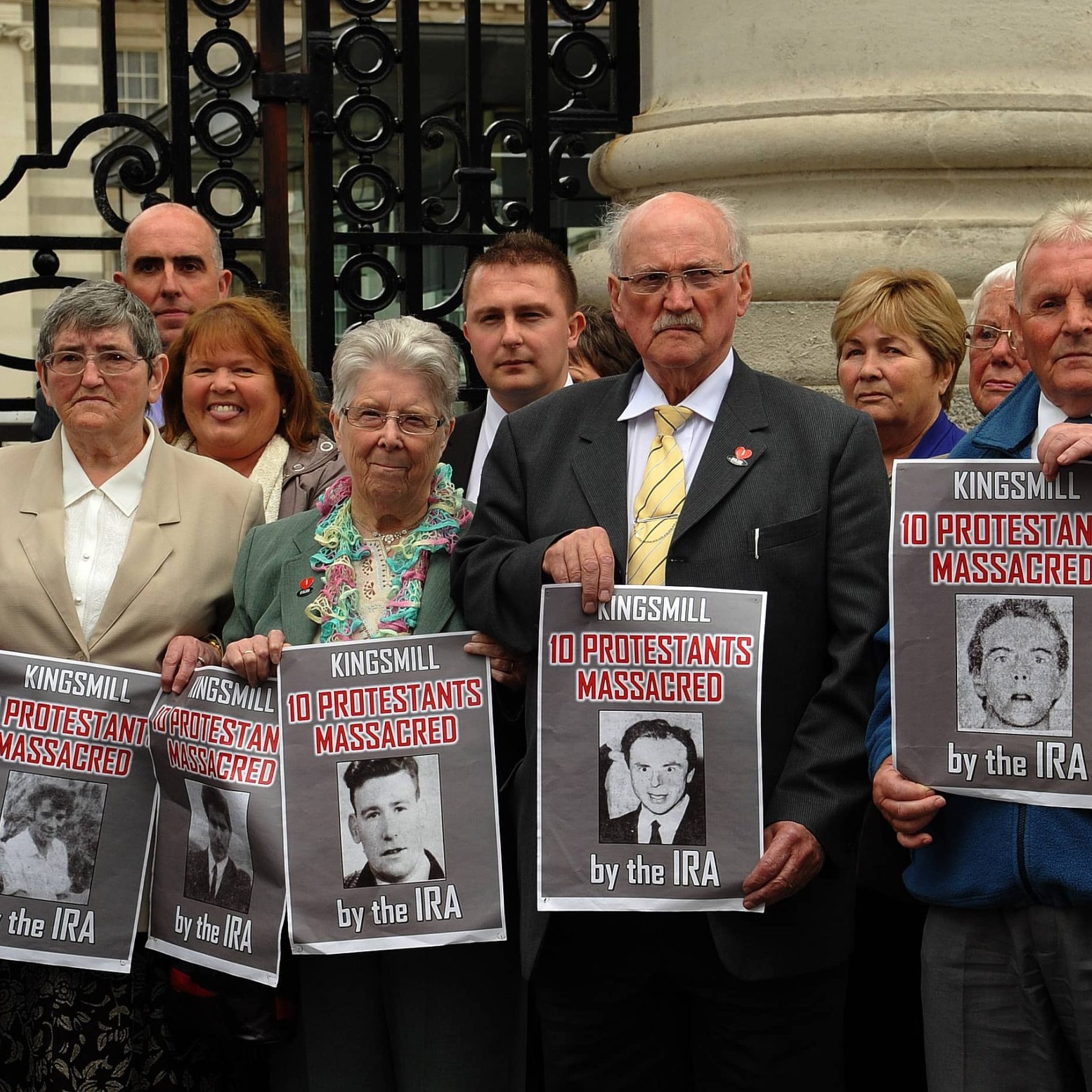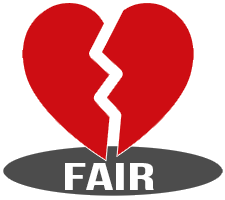ADVOCACY
A Voice for Victims
They Being Dead yet Speak
When the Bible reflects upon the first murder we have recorded in history, we hear the phrase "he being dead yet speaketh". It is a concept of the life and witness of a good man living on after his death. The story of Cain and Abel presents the power of the written record to preserve and promote the truth. It records the good life of one and the wicked deed of another and is moral lesson to us all. This is the importance of recording the stories of victims, in those stories they live on and continue to have a positive presence in our community. Secondly they are a witness against those who murdered them and thirdly a lesson for us all which aims to prevent the same tragedy happening again.
Advocacy means giving victims a voice and adding weight to their work for truth justice, and equality. FAIR has been that strong consistent voice for reason and real peace for over 25 years.
It has spoken for victims at all levels both here and abroad as we ensured that victims and their rights are not ignored. Our advocacy work has stretched from lobbing for political and policy changes to representing victims as they seek advice, benefits and compensation.
FAIR pioneered victims advocacy and now works with a number of local and international advocacy programmes and projects to ensure that victims rights are protected
For over 25 years FAIR has worked tirelessly to give victims a voice and to provide practical support and care for the bereaved and injured. Our international advocacy and human rights work brought a spotlight onto terrorism in Northern Ireland and challenged those who supported it.
We have led the way in the fight for justice and support for innocent victims ensuring they get a fair deal. Behind the headlines our team of staff and volunteers provide a range to support services to those who suffered as a result of the Northern Ireland Troubles.
After over a quarter of century we have still not dealt with the past in a fair and just way. Victims continue to suffer and often are silenced when they speak out. Join us as we attempt to build a just and lasting peace in Northern Ireland

Leading the Way in Advocacy
From international campaigning to providing a voice in local government consultations FAIR has provided a voice for victims.
FAIR Advocacy Work
Working with a number of Advocacy programmes from Human Rights work to benefits and compensation FAIR ensured that victims' views and vision are voiced.
Our advocacy services focus on providing support, resources, and assistance to individuals and communities affected by acts of terrorism. These services aim to ensure that the rights and needs of victims are recognised, respected and responded to by those who form policy, fund the sector, find the truth, follow justice and finally anyone whose position or power can improve the lives of victims.
Advocacy covers a range of services tailored to the specific needs of victims, from speaking on their behalf to influence decisions which impact on their lives to raising the awareness of the legacy of terrorism and its devastating effects on ordinary people. It also includes:
1. Information and Guidance: Advocacy services provide victims with information about their rights, available support programs, and legal processes. To help victims navigate complex systems and procedures and offer guidance on accessing financial assistance, medical care, and other essential resources.
2. Emotional Support: Advocates offer emotional support and a listening ear to victims, acknowledging their experiences and validating their feelings. They may provide counselling, crisis intervention, or referrals to mental health professionals who specialise in trauma.
3. Legal Assistance: Victims of terrorism advocacy services often provide legal support, connecting victims with attorneys who can help them understand their legal rights and options. This may include assistance with filing compensation claims, navigating the criminal justice system, or seeking justice through legal avenues.
4. Practical Support: Advocates assist victims in accessing practical support, such as housing assistance, financial aid, or employment services. They may also help with practical tasks, such as completing paperwork or making arrangements related to the aftermath of an attack.
5. Public Awareness and Education: Advocacy services work to raise awareness about the impact of terrorism on victims and their families. They engage in public education campaigns, share personal stories, and advocate for policy changes that prioritise the needs and rights of victims.
6. Community Building and Networking: Advocacy services often facilitate support groups or community events where victims can connect with others who have experienced similar traumas. This sense of community and shared understanding can be invaluable in the healing and recovery process.
7. Peace Building and Reconciliation: as those who suffered most during the Troubles victims have a moral mandate to speak out in support of peace and reconciliation. There is a power in their words and wisdom born from the tragedy and pain of their experiences and any peace process which ignores or excludes them is not fit to be called a peace process,.
Victims of terrorism advocacy services play a crucial role in empowering survivors, promoting their rights, and helping them rebuild their lives in the aftermath of a terrorist attack. By providing comprehensive support and resources, these services aim to ensure that victims are not left to navigate the challenges alone and are able to access the assistance they need to move forward.



